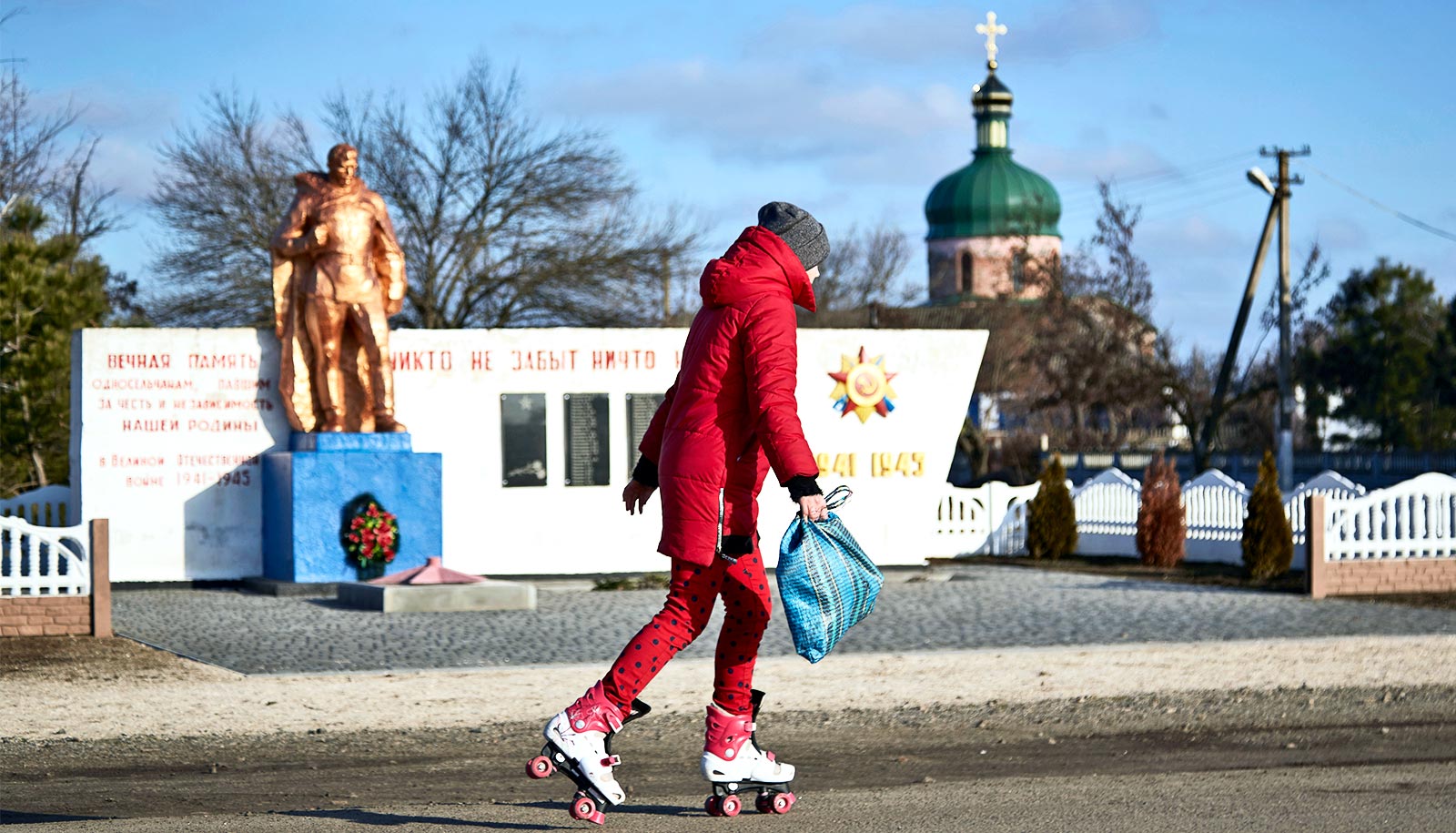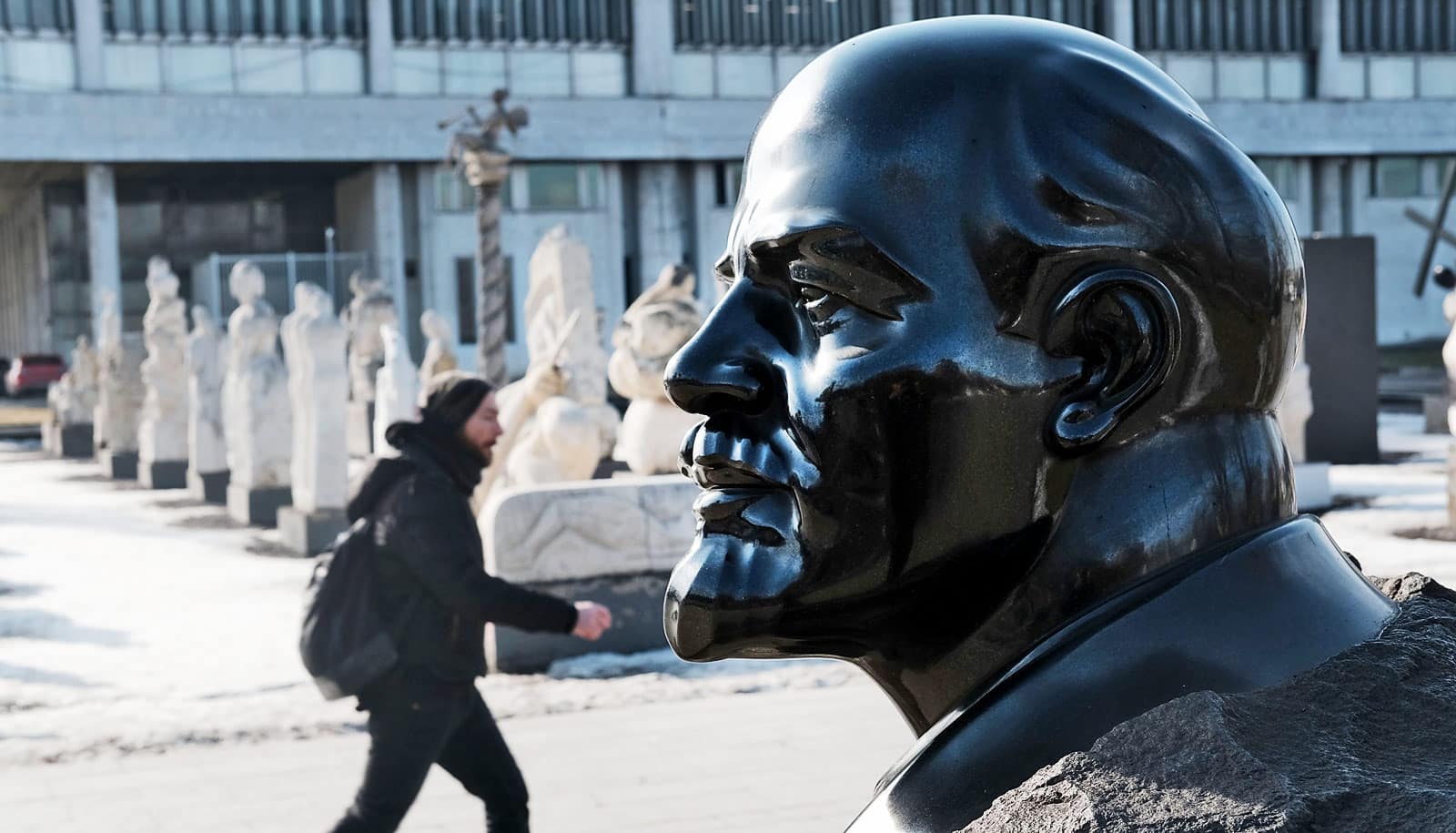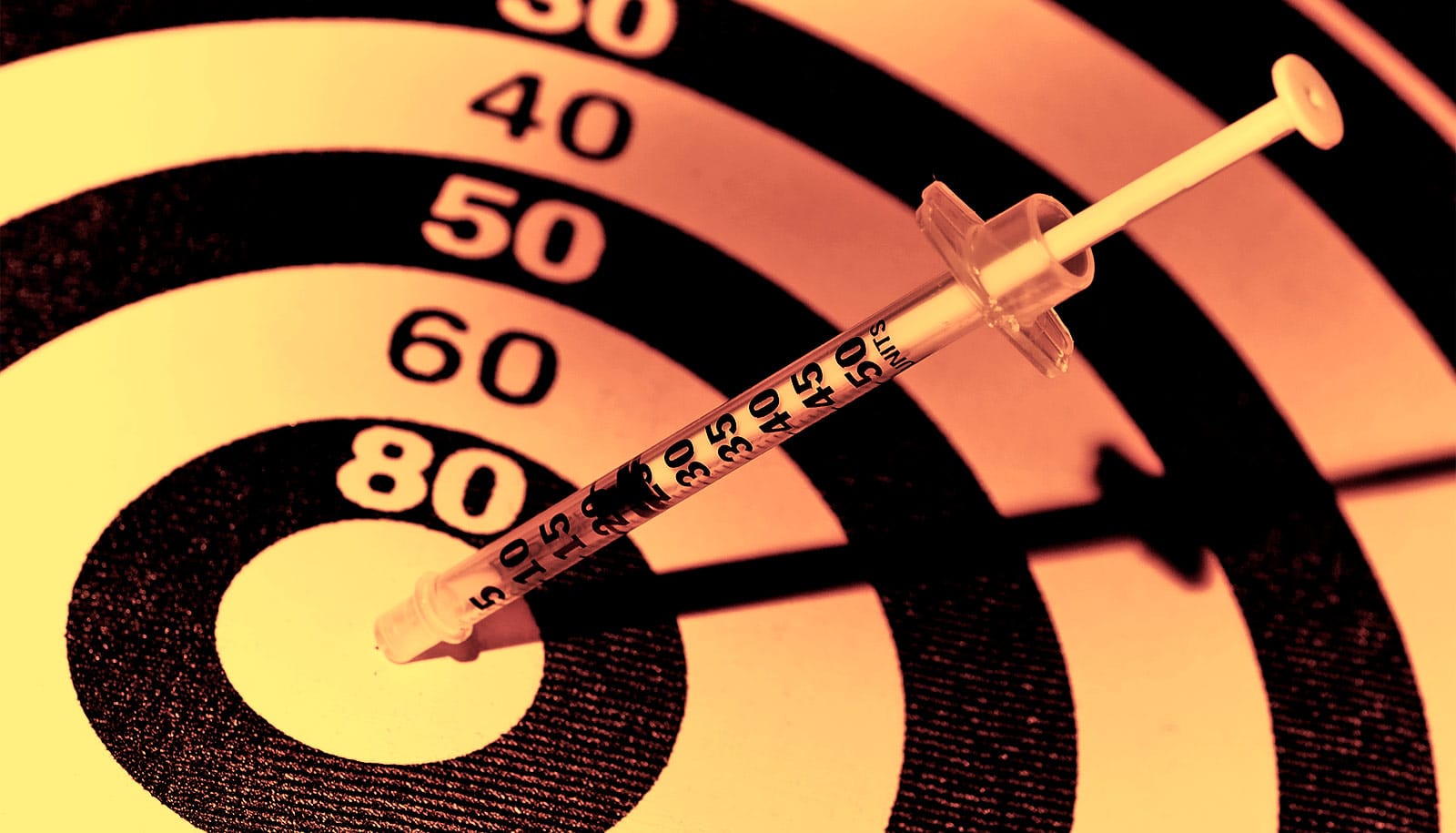A Russian invasion of Ukraine would ultimately militarize NATO and render Russia less secure, argues political scientist Randall Stone.
Russian President Vladimir Putin’s recent belligerent behavior toward neighboring Ukraine has already caused NATO allies to close ranks and work in much greater unity, says Stone, a political science professor, chair of the political science department, and director of the Skalny Center for Polish and Central European Studies at the University of Rochester. Now, Putin “has created a trap for himself and is ending up in a weaker position.”
An expert on Russia and US-Russian relations, Stone notes that the current situation “feels like back to the future,” 31 years after Ukraine gained independence from the former Soviet Union and when “we thought we had moved past this stage.”
Putin has often been characterized as a clever manipulator. “But one has to ask—why is he making so many mistakes?” says Stone, pointing to Putin’s failed attempt to poison and kill the Russian opposition leader Alexei Navalny, which led to widespread protests in Russia and turned Navalny “into a martyr and cause célèbre.”
“Perhaps,” Stone adds, “what we’re witnessing here is that Putin miscalculated. He hoped that the West would make concessions, and now he has to figure out how to extricate himself from a looming crisis—does he fold or does he escalate?”
Here, Stone puts the current situation at the Ukraine-Russia border in historical perspective and explains the political ramifications of an invasion:
Looking at this conflict in historical context, why do Putin’s threats of invasion seem so surprising?
With the end of the Cold War and the collapse of the Soviet Union, we came to expect that a more hopeful scenario of international development would prevail.
It’s rational for countries that depend on each other for trade, finance, and cultural exchange to move toward cooperation, and the expectation was that international organizations would facilitate solutions to international conflict. It seemed to be the case that naked aggression just didn’t pay anymore and conquering territory didn’t make economic sense. Trading is much more efficient, and seizing assets didn’t seem to be a strategy with a future.
So, have we been mistaken? Does Putin understand something about international relations that specialists who have studied it for decades have missed? Or is this a desperate gambit that will reveal that there really isn’t any way for him to exert his will in this way?
How does the average Russian see Ukraine vis-à-vis Russian statehood?
Ukraine became part of the Russian empire when Catherine the Great conquered it in the second half of the 18th century, making it an important part of the Russian myth of statehood. In the following years, an influx of Russians settled in the eastern and southern parts of Ukraine, and Russia came to consider Ukraine an integral and essential part of its territory.
Most Russians do not regret the end of communism; yet the average Russian would agree with Vladimir Putin that the dissolution of the Soviet Union was a great tragedy. The territorial breakup of the Russian Empire is still something that is deeply troubling to most Russians. In 2014, Putin boosted his ratings when he seized Crimea and incorporated it into the Russian Federation. It is important to keep in mind that this was a very popular and virtually uncontroversial move in Russia.
Why do average Russians object to the possibility of Ukraine’s joining NATO?
The Russians have been telling us for a very long time that they care very deeply about this issue and that it would be a fundamental threat to Russian national interests if Ukraine joined NATO.
Ironically, one of the reasons why Ukraine is not a member of NATO now is that the NATO partners have been afraid to bring such an unreliable and politically unstable country into the alliance. Who knows who is going to win the next Ukrainian election and what NATO would then be committed to?
What’s the historic backdrop to NATO’s eastward expansion?
Average Russians see NATO’s expansion as a threat and a betrayal. In the negotiations that led to the end of the Cold War, the withdrawal of Soviet troops from East Germany, and the unification of Germany in 1990, assurances were made that NATO forces would not advance further to the east.
Of course, there was no thought in 1989 of expanding NATO to include former members of the Warsaw Pact, or even to former republics of the Soviet Union, because the Soviet Union had not yet dissolved and was still in control of most of those territories. The context changed rather drastically two years later. But those assurances were taken by Russian elites as a promise that had been made.
Why was Putin’s annexation of Crimea in 2014 also a miscalculation?
Ukraine oscillated between pro-Russian and anti-Russian electoral majorities during the decades since independence. Whenever the anti-Russian/pro-democratic opposition was disorganized or dysfunctional, which was frequently the case, it was possible to organize a pro-Russian coalition that could win national elections in Ukraine. As a result, for most of that 30-year period of independence, Ukraine had pretty friendly relations with Russia.
But after Putin annexed Crimea, he took away a key voting bloc in Ukraine that had been reliably pro-Russian. Now Putin no longer had a political option to “win” an election in Ukraine, and had to find an alternative way of controlling Ukrainian politics. This was the reason for fomenting separatist regimes in the Luhansk and Donetsk provinces on Ukraine’s eastern border.
Putin did not want responsibility for those territories, and creating a civil war in eastern Ukraine impoverished all of the surrounding regions on both sides of the border. The civil war, however, was useful to Putin because it created a way for Moscow to apply pressure when it wanted to force Ukraine to make concessions. It was made necessary by the annexation of Crimea.
Why is Putin threatening Ukraine now?
The American withdrawal from Afghanistan and the way in which it took place were perceived by the Russian leadership as signs of weakness. For several years now, Russian analysts have perceived Europe as divided and weak, in part because of the Brexit disaster.
Putin’s advisors have assumed that the Western European countries wouldn’t be able to cooperate in the framework of NATO, and without them the United States would not be very effective. Meanwhile, Biden faces a lot of opposition in Congress, and Russian analysts have questioned whether he’d be able to lead effectively.
Combining these factors, Russian elites have argued that now is a good time to make some demands. I think that is a terrible miscalculation on Putin’s part. It’s remarkable to see how NATO allies have already fallen into step, galvanized by the common threat. A lot of the previous disunity seems to have evaporated as a result of Putin’s recent actions. So again, he does not look so brilliant. He has created a trap for himself, and however the crisis plays out, it is likely to leave him in a weaker position than he was before.
So, will Putin invade Ukraine?
I don’t know. I’m not in the business of making predictions. As political scientists, we use data to explain patterns after the fact, but we’re not very good at making predictions.
That said, Putin has a couple of options. One is to occupy Ukraine, take over the entire country, and perhaps incorporate it into greater Russia. Another military option for Putin would be the “Novorossiya” strategy, where instead of trying to occupy the whole country, he expands the territory under Russian control. For example, he could connect the occupied area of Donetsk and Luhansk in the east to Crimea in the south by occupying the coastal region in between.
The majority of people in this territory speak Russian and think of themselves as ethnically Russian. It’s also the part of Ukraine where the most pro-Russian votes were found in elections. In other words, this is the territory that would be least costly to occupy and control, and doing so would create the appearance of having accomplished something after having mobilized his troops.
Mobilizing troops along the border only to send them home looks like a defeat. Putin is particularly sensitive about his public opinion ratings; his declining popularity is a fundamental source of insecurity of his regime. A limited invasion is an escalation strategy that would be feasible and that might lead to something that he could present as a success.
Would Russia be able to control an occupied Ukraine after an invasion?
Russia has the military capacity to defeat the Ukrainian army, mainly because Ukraine has no effective answer to the Russian air force. On the other hand, a long-term occupation of the whole country would be difficult.
There are 130,000 Russian troops currently mobilized along the border of Ukraine, and US intelligence analysts tell us that this will increase to 175,000 before an invasion. That force is basically all of the army that Putin has to deploy with the combat readiness and logistical capacity to maneuver and hold territory.
The remainder of Russian forces are not at the same level of readiness. Yet that combat-ready force is not sufficient to occupy a country the size of Ukraine and pacify it against active resistance. Russia would have to mobilize a lot more forces, and it would be a long, bloody conflict.
What’s the price Russia might pay for an invasion, even a partial one?
The cost of an invasion would be tremendous. It would pit Russia against the West in a way that it has not been since the Cold War. After this, NATO would be more militarized and Russia would be less secure. And, ironically, an invasion would make it much more likely that what’s left of Ukraine eventually ends up becoming a member of NATO.
The economic sanctions that NATO allies have promised in response to an invasion would disrupt Russia’s trade, destabilize its banking system, cause the ruble to lose much of its value, and drive down the standard of living of ordinary Russians.
This doesn’t make sense as the endpoint of a strategy. It looks more like a fallback position—just like seizing Crimea was—to cover up a miscalculation. Putin calculated that if he bluffed, the West would fold. Now he is stuck with a bet that he cannot cover, and he has to decide whether to cut his losses or escalate.
Source: University of Rochester


